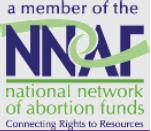About Trust Women Fund
Every year thousands of women sacrifice food, risk eviction, and pawn
their possessions in order to raise money for an abortion.
Women
face these difficult situations because the government denies abortion
funding to women in need.
In 2009, an abortion and reproductive
health care clinic called Mountain Country Women's Clinic was opened in downtown Livingston, Montana. Trust Women Fund was formed in
Livingston in the summer of that year to support women who want
abortions but cannot afford them. We provide financial assistance and
support to women in need.
We believe that the legal right to abortion is only meaningful when
women have the resources to obtain abortion services. Restrictions on abortion care and on public funding for abortion are discriminatory because they especially burden poor women, women of color, young women and rural women.
Abortion is part of basic health care, which is a right that should be guaranteed to all through an expanded Medicaid program or another universal health care plan.
All women are entitled to reproductive justice. All women deserve to live in a world in which they have the power and the resources necessary to make healthy decisions about their bodies and their families.
We must also fight for long-term change that guarantees every woman full reproductive health care. We call for full public funding of abortion, culturally competent and non-coercive family planning services, and support for low-income women to care for their children with dignity.
About the National Network of Abortion Funds
Background In 1973,
when abortion first became legal nationwide, poor women could obtain
coverage for abortion through the Medicaid program. Medicaid is the
government health program for low-income people in the United States.
Between 1973 and 1977, almost any woman who needed an abortion could
obtain one, regardless of her ability to pay. But in 1976 Congress
passed the Hyde Amendment, banning federal Medicaid funding for
abortion. Since that time, federal Medicaid has paid for virtually
no abortions. Thirty-three states have also banned state Medicaid
funding for abortion.
Women Are
Denied the Right to Abortion
Bans on
Medicaid funding for abortion deny the right to abortion to thousands
of women and most severely affect poor women, women of color, and
young women. The cost of a first-trimester abortion can be more than
half of what a poverty-level family lives on in a month. Poor women
and girls often delay their abortions as they try to scrape together
the money they need. These delays can force them into more expensive
and complicated second-trimester abortions. Sometimes, they never get
the money they need. As many as one in three poor women who would
obtain an abortion if Medicaid covered it are instead forced to
continue the pregnancy.
Congress
also denies abortion coverage to many other women who rely on federal
health plans: women in the U.S. military and Peace Corps, federal
employees, disabled women, federal prisoners, Native American women
covered by the Indian Health Service, and residents of the District
of Columbia.
History of the National Network of Abortion Funds
In 1993,
24 grassroots abortion Funds came together to create the National
Network of Abortion Funds. Today, as the only organization of its
kind, the Network includes over 100 Funds in more than 40 states.
Grassroots abortion Funds continue to provide leadership for the
Network. Members of our board of directors come directly from our
member Funds, and each board member plays an active role in providing
assistance to women in need on the local level.
©
2009 Trust Women Fund. All rights reserved.
[Donate Button Goes Here]
Trust
Women Fund Inc. is a 501(c)3 non-profit volunteer organization.
Trust
Women Fund is a member of the National Network of Abortion Funds.

|